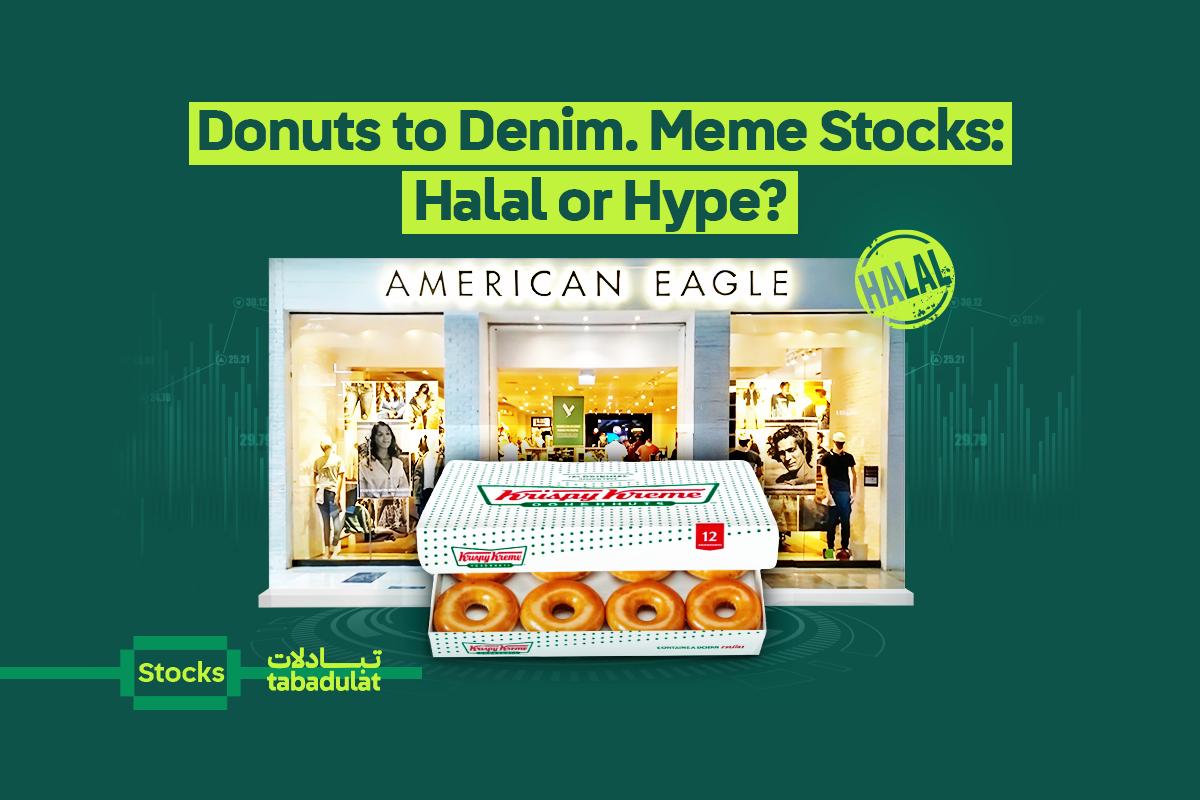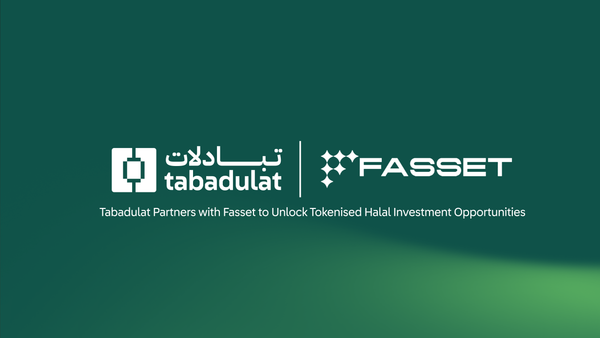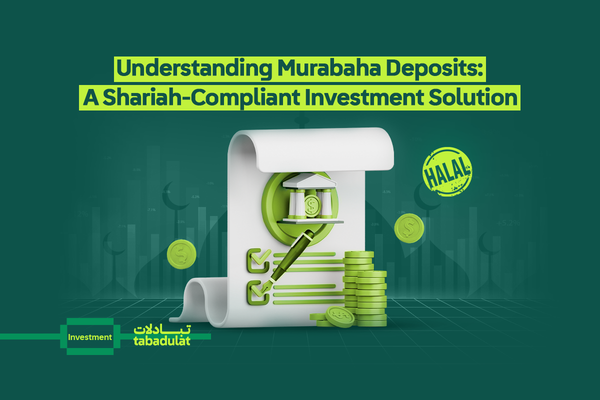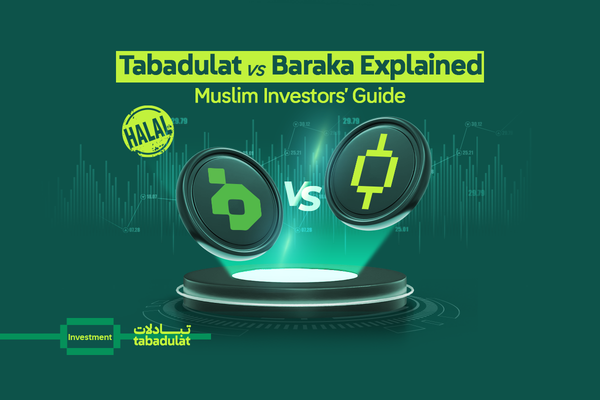Are Meme Stocks Making a Comeback? What Muslim Investors Should Know...
Are meme stocks like GoPro, Krispy Kreme, and American Eagle halal? This article breaks down their Shariah compliance for Muslim investors and explains how to screen trending stocks using halal investing tools like Tabadulat.

In what feels like déjà vu, stocks of well-known consumer brands like GoPro, Krispy Kreme, and American Eagle have experienced sudden surges last week, echoing the 2021 meme-stock mania led by GameStop and AMC. But what exactly is happening, and should Muslim investors be paying attention?
Meme stocks are not your typical Wall Street picks. They're driven less by earnings reports or cash flow models, and more by emotion, pop culture, and sometimes internet humour. As Jaime Rogozinski, founder of the popular Reddit forum “WallStreetBets”, puts it:
“I don’t care about financial statements.. I like chicken tenders.”
What’s Fueling the Surge?
A combination of strong economic indicators, vibrant online communities, and a desire to challenge traditional investing norms has once again pushed retail investors into speculative territory. Social media campaigns, celebrity endorsements (like Sydney Sweeney for American Eagle), and inside jokes have all played a role.
It’s a new era of investing, one where power is decentralised, and financial influence can emerge from anywhere. As one Reddit moderator noted, “Great ideas can now come from anyone, anywhere.”
What Should Muslim Investors Know?
For Muslim investors who seek both performance and compliance, understanding the Shariah status of meme stocks is key. Here’s how the three trending stocks currently stand:
For a refresher in the basics of Shariah-compliant investing please read our guide.
- American Eagle Outfitters (NYSE: AEO) - Shariah-compliant.
The clothing retailer has seen a spike in popularity thanks to Gen-Z marketing and celebrity endorsements. The stock surged by 18% last week and maintains a clean balance sheet, with interest-bearing debt and non-compliant income well within Shariah limits.
- Krispy Kreme (NASDAQ: DNUT) - Not Shariah-compliant.
Despite a strong brand comeback and a 41% jump in stock price, Krispy Kreme’s financial structure includes significant interest-bearing liabilities, and a portion of its revenue comes from non-compliant sources, excluding it from halal portfolios.
- GoPro (NASDAQ: GPRO) - Not Shariah-compliant.
Known for its action cameras, GoPro’s stock climbed an impressive 72% last week. However, the company currently exceeds acceptable thresholds for non-compliant financial ratios under most Shariah screening methodologies.
Bottom Line
It’s tempting to get caught up in the excitement, especially when stocks are soaring overnight. But Shariah-compliant investing is rooted in both ethical principles and financial discipline.
Platforms like “Tabadulat” enable investors to quickly assess whether a trending stock meets Shariah standards, providing clarity amid the hype.
Before jumping into any meme-driven trend, make sure you’re investing not just in momentum but in values you believe in.
Meme Stock Comeback? What Muslim Investors Need to Know
In what feels like déjà vu, stocks of well-known consumer brands, such as GoPro, Krispy Kreme, and American Eagle, are surging again, reminiscent of the 2021 meme-stock frenzy led by GameStop and AMC. But this time around, the question on the minds of many Muslim investors isn't just about momentum or hype; it's about halal investing, Shariah compliance, and whether this trend aligns with Islamic financial ethics.
Thanks to platforms like Reddit's WallStreetBets and TikTok's "finfluencers" investing has become part entertainment, part rebellion. Yet, amidst the chaos, many Muslims are asking serious questions: Is investing in stocks haram? Are stocks haram? Is the stock market halal in Islam? Is the stock exchange halal?
Let's unpack this emerging trend through the lens of Islamic finance.
What Are Meme Stocks?
Meme stocks are not your typical value-driven investments. They're not selected by seasoned analysts running discounted cash flow models or poring over earnings reports. Instead, they are driven by internet trends, emotions, and social momentum.
They're often companies with high short interest, strong brand recognition, or cultural relevance. But their prices are influenced more by viral posts than by fundamental value.
As Jaime Rogozinski, founder of the Reddit forum WallStreetBets, puts it:
"I don't care about financial statements... I like the chicken tenders."
It's this sort of sentiment, emotional, humorous, and irreverent, that fuels the meme stock engine, often leading investors to make short-term bets rather than measured investment decisions.
What's Causing the Resurgence?
This new wave of meme stock mania is driven by a mix of factors:
- Stronger-than-expected economic data
- Celebrity endorsements (like Sydney Sweeney for American Eagle)
- Pop culture virality
- Youthful defiance of traditional investment logic
The recent surges in GoPro, Krispy Kreme, and American Eagle aren't coincidental; they're part of a larger movement in which retail investors, many of whom are young and socially connected, try to outmaneuver institutional players.
But where does this leave Muslims who want to participate in markets while staying true to halal investing principles?
Halal Investing: Balancing Profit and Principles
Halal investing means choosing investments that are ethically permissible according to Islamic law (Shariah). This typically involves avoiding:
- Companies involved in alcohol, gambling, or interest-based revenue
- Excessive debt or non-permissible financial instruments
- Investments that don't comply with the socially responsible investing standards endorsed by Islamic scholars
Fortunately, tools like halal stock screeners and shariah-compliant funds make it easier to determine whether a stock or fund complies with Islamic law. Muslim investors today are also utilising platforms like Tabadulat, Zoya, or Umma to screen and evaluate halal stocks for investment across various asset classes.
Are Meme Stocks Halal?
Here's a Shariah compliance breakdown of the three trending meme stocks from a recent surge:
Want to better understand Shariah-compliance in Islamic Finance? Read our guide.
✅ American Eagle Outfitters (NYSE: AEO) – Shariah Compliant
- Popular among Gen-Z
- Surged 18% recently
- Passes most Shariah-compliant stock screens
- Low interest-bearing debt
- Compliant revenue sources
This is a stock that would likely show up on a halal stocks list, making it a suitable choice for Muslims looking to participate in the meme trend without compromising their ethics. The company's market capitalisation and clean balance sheet offer some reassurance to those evaluating its eligibility based on total assets and debt levels.
❌ Krispy Kreme (NASDAQ: DNUT) – Not Halal
- Rose 41% in value last week
- Involves interest-based financing
- Revenue from non-compliant activities, including sectors like alcohol and gambling
- Fails key Shariah compliance ratios
Despite its strong branding and market rebound, Krispy Kreme doesn't meet halal standards. So, if you're asking, is buying stocks haram? It depends on the stock. In this case, yes. It highlights the importance of analyzing not just products but the structure and underlying financial instruments used by the company.
❌ GoPro (NASDAQ: GPRO) – Not Halal
- Gained 72% recently
- Fails compliance due to excessive debt and non-compliant income
- Not suitable for Shariah-compliant investing
GoPro is another example of a non-compliant stock despite market popularity. For Muslim investors, the question is not just whether trading stocks is haram, but also: "What kind of company am I investing in?" The Shariah lens extends beyond profit; it examines the core ethics of investing in companies, encompassing their values and principles.
The Grey Areas: Stock Trading and Speculation
For many Muslims, is stock trading halal? It is a nuanced question. In principle, trading halal-compliant stocks is permissible. But meme stocks introduce elements of Gharar (excessive risk) and speculation, which could render the activity Makruh (discouraged) or even Haram, depending on the intention and behaviour practicing.
Is the stock market halal? Yes, if you stick to halal stocks, trade ethically, and avoid highly speculative or short-term trades driven by viral trends.
Are Stock Options Halal?
Another rising area of interest is options trading. Many investors ask: Are stock options halal? Is options trading haram? The consensus among most Islamic scholars is that conventional options involve speculation and ambiguity, rendering them non-compliant.
Shariah-compliant alternatives are being developed, like structured exchange traded funds (ETFs) that incorporate screened equities. However, these options typically come with a different expense ratio and require careful review before investing.
ETFs, Mutual Funds, and Diversification
If meme stocks aren't for you, or you're wondering what is the best halal investment, consider halal ETFs and Islamic mutual funds. These funds are screened for compliance and provide a diversified way to invest in equities across various asset classes.
Funds with large total assets and lower expense ratios can be more cost-effective in the long run. Platforms like Tabadulat and Zoya make it easy to browse through Shariah-compliant funds that align with both ethical and financial goals.
For a deeper dive into the shariah compliance of ETFs read our full guide.
Umma Stock and Islamic Investment Ecosystems
The rise of community-focused financial apps like Umma stock shows that demand for ethical investing is growing. Muslims around the world want to align their money with their values, and now, they have the tools to do it. Whether you're investing through Tabadulat, Umma, or Zoya, you're part of a movement redefining what it means to build wealth with Shariah compliance.
Do You Pay Zakat on Stocks?
Yes, zakat on stocks is obligatory for practising Muslims who meet the Nisab threshold.
How does it work?
You must:
- Calculate the value of the stock investments you hold
- Determine whether they are for trading or long-term investment.
- Pay zakat (typically 2.5%) on the market value of trading stocks, and the dividends (if applicable) for long-term holdings.
This means if you own meme stocks like American Eagle (which is halal), you may be obligated to include them in your zakat on stocks calculation. So yes, to answer the commonly searched query:
Do you have to pay zakat on stock?
Yes, if you meet the zakat criteria.
Bottom Line: Faith Over FOMO
It's easy to be swept up in hype, especially when stocks are gaining 70% in a week. But halal investing is about more than quick gains. It's a discipline that calls for patience, research, and a deeper understanding of your investment's ethical footprint.
When in doubt, ask:
- Is this stock on a halal stocks list?
- Does it pass a halal stock screener?
- Would I feel confident explaining this investment's shariah-compliance?
Whether you're screening stocks, evaluating exchange-traded funds, or making long-term investment decisions, the goal is the same: seek returns that are both rewarding and righteous. With the help of modern platforms, Muslims can confidently engage in socially responsible investing that honours both their goals and their faith.
Frequently Asked Questions
Is Krispy Kreme halal?
No. Krispy Kreme is not Shariah-compliant. It has interest-bearing debt and earns revenue from non-halal sources, which exceeds the thresholds set by AAOIFI. It fails both business activity and financial ratio screens.
Is American Eagle halal?
Yes. American Eagle Outfitters is considered Shariah-compliant. It passes Shariah compliance checks, including low interest-bearing debt and compliant revenue sources. It appears on most halal stock screeners.
Are GoPro stocks halal to invest in?
No. GoPro is not halal to invest in. It exceeds acceptable Shariah thresholds for non-compliant financial ratios, particularly in debt and interest-based income.
How do I invest in US stocks from Saudi Arabia?
You can invest in US stocks from Saudi Arabia by opening an international brokerage account that offers access to US markets. For Shariah-compliant options, platforms like Tabadulat screen over 40,000 stocks using AAOIFI standards and are tailored for Muslim investors seeking halal exposure globally.
How do I invest in US stocks from the UAE?
UAE residents can invest in US stocks via regulated platforms that offer access to NYSE and NASDAQ. To stay halal, use tools like Tabadulat’s free halal stock screener to identify compliant US companies. It ensures your investments align with Islamic values and financial ethics.




